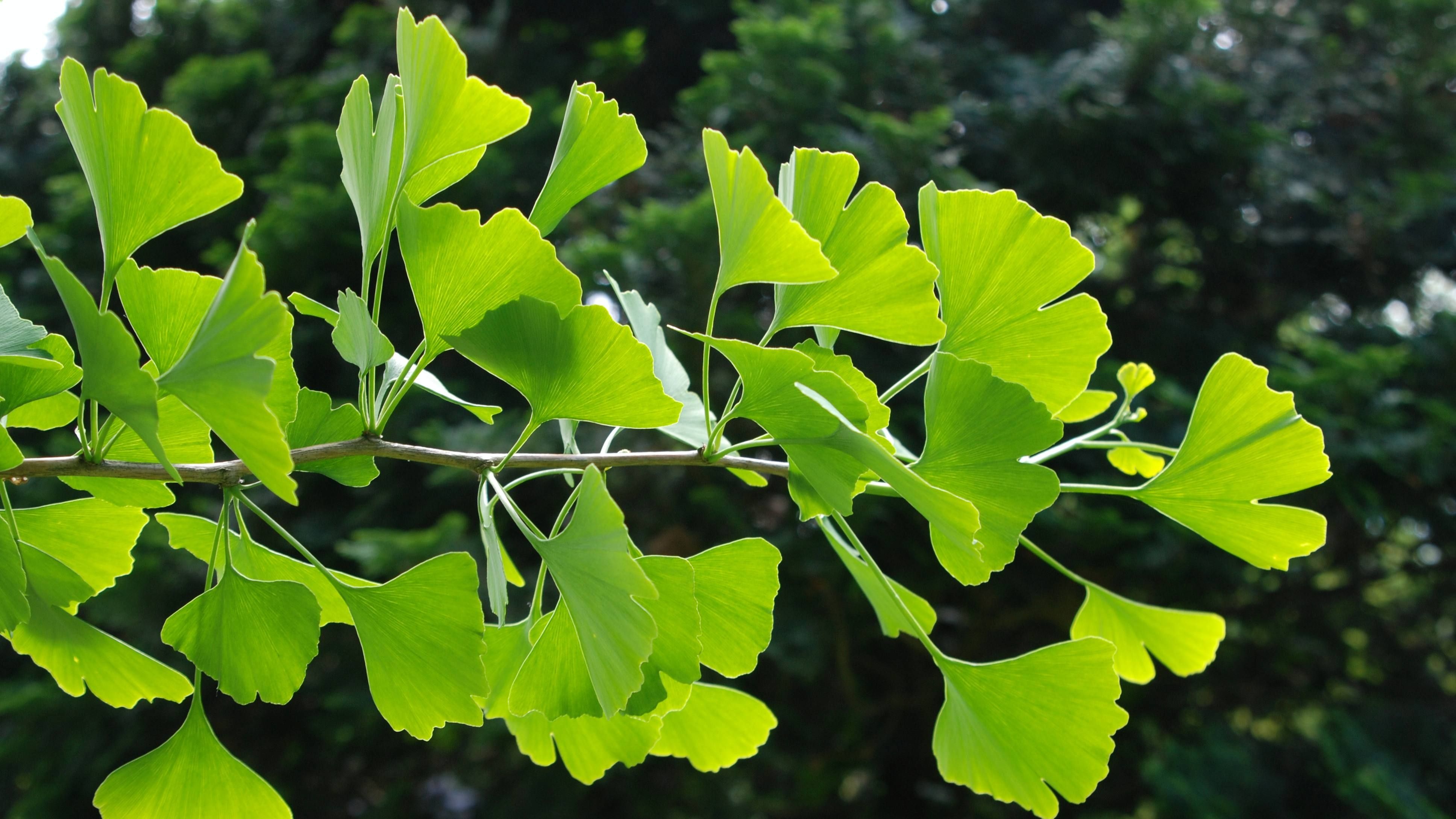Ginkgo Biloba

English Name: Ginkgo
Latin Name: Ginkgo Biloba
Type: Botanical
What is Ginkgo Biloba?
The ginkgo biloba herb is also known as a maidenhair tree for the way its leaves resemble the maidenhair fern. The ginkgo biloba plant is one of the oldest species of tree still living on the planet. In fact, fossil evidence of the ginkgo biloba dates to the Jurassic period some 270 million years ago. Some living examples of the ginkgo biloba tree are native to China and Japan and are believed to be upwards of 800 years old, and the tree’s leaves, seeds, and roots have long been used in traditional medicine to treat dementia, circulatory disorders, and other health concerns.
The nut-like innards of the seed pods are part of a traditional Chinese dish called congee that is often served at weddings and Chinese New Year celebrations. The tree is slow-growing, disease-resistant, and adapts well to urban environments, making it a popular species for cultivation. In fact, it is the official tree of the city of Tokyo and the symbol of the esteemed Urasenke school of the Japanese tea ceremony1. A testament to the tree’s hardiness is the fact that six ginkgo bilobas survived the atomic bomb blast in Hiroshima and continue to thrive there today2.
What are the benefits of Ginkgo Biloba?
Learning & Focus
Studies have indicated that ingesting ginkgo biloba can improve the symptoms of dementia, at least as well as synthetic medications, including better cognition and overall functioning. Higher dosages showed more significant results for ginkgo biloba brain benefits than lower dosages, but the studies are ongoing.
Mood & Stress
It is believed that ginkgo biloba has mild anxiolytic effects, potentially reducing feelings of anxiety and stress. It may interact with the gamma-aminobutyric acid (GABA) system, promoting a calming effect, and influencing neurotransmitters like serotonin and dopamine, which play roles in mood regulation. Additionally, ginkgo biloba may help regulate cortisol levels, the hormone released in response to stress.
Circulation & Blood Flow
Ginkgo has also shown promise in relieving intermittent claudication — a feeling of pain or weakness usually in the legs during exercise that can be a symptom of peripheral artery disease. In this condition, the veins that supply blood to the arms or legs have narrowed, resulting in problems with blood circulation. Though not considered a cure, ginkgo has been shown to reduce pain symptoms of claudication, allowing for improved exercise performance3.
Vision & Eye Health
Ginkgo biloba may support vision and eye health through improved blood flow to the retina and antioxidant properties. It is believed to have neuroprotective effects on eye nerve cells. While more research is needed, some evidence suggests it could enhance vision and clarity.
How does Ginkgo Biloba work?
Two components of the ginkgo biloba leaf make up its beneficial qualities: flavonoids and terpenoids3. Flavonoids are powerful antioxidants that help the body combat free radicals and reduce inflammation, which can have far-reaching health implications. Flavonoids have also shown anti-microbial and anti-fungal properties, making them beneficial in many ways. Terpenoids are found in many aromatic medicinal plants, such as eucalyptus, cinnamon, cloves, and ginger. Menthol, camphor, and cannabinoids are all forms of terpenoids, and both turmeric and mustard seeds contain terpenoids. These phytochemicals help white blood cells attack invaders without overstimulating the immune system, disrupt inflammation-causing processes in the body, and help the body synthesize vitamin A4.
Native Remedies recommends you consult your doctor before introducing new herbal products into your regimen. Always ensure you are buying high-quality, laboratory-tested supplements from a reputable supplier. At Native Remedies, we back all our products with a 100 percent money-back guarantee. If you’re not happy with your purchase after trying it for 30 days, simply send it back for a refund. Here’s to your good health!
The content provided is for informational purposes only. It is not a substitute for professional medical advice. If you have a health condition, please consult a medical professional and do not use this information to self-diagnose or self-treat.
Resources:
- "Ginkgo." Mayo Clinic. October 12, 2017. Accessed October 12, 2018. https://www.mayoclinic.org/drugs-supplements-ginkgo/art-20362032.
- Kwant, Cor. "A-bombed Ginkgo Trees in Hiroshima, Japan." The Ginkgo Pages. Accessed October 12, 2018. https://kwanten.home.xs4all.nl/hiroshima.htm
- Sierpina, Victor S., Bernd Wollschlaeger, and Mark Blumenthal. "Ginkgo Biloba." American Family Physician. September 01, 2003. Accessed October 12, 2018. https://www.aafp.org/afp/2003/0901/p923.html.
- Isokauppila, Tero. "Terpenoids: What Are They and What Do They Do?" Four Sigmatic. Accessed October 12, 2018. https://us.foursigmatic.com/blog/terpenoids-what-are-they-and-what-do-they-do.
Reviewed by Master Herbalist, Mary Ellen Kosanke